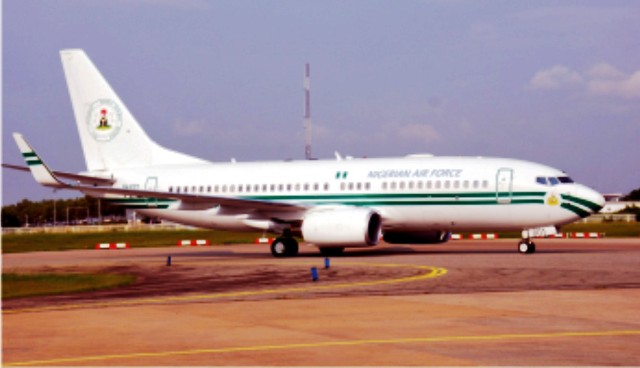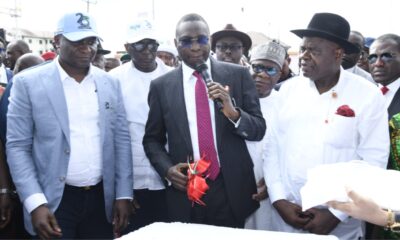Business
FG Places Nine-Year Presidential Jet On Sale

The Federal Government has put up for sale a jet in the presidential fleet, Hawker 4000 aircraft with registration number 5 N- FGX/ : RC 066.
The business-size jet which entered into service in December 2011, according to findings, has capacity for nine passengers and three crew members.
Further findings also indicate that only 73 Hawker 4000 aircraft were manufactured by Hawker Beechcraft between 2001 and 2013 and they were sold for $ 22 .91 m each as of 2012.
The Federal Government, in a published advert on Wednesday, disclosed that the aircraft with a range of 3 ,190 -nautical mile had flown for 1,768 hours.
It said the aircraft could be inspected at the Presidential Air Fleet ’s hangar located at the Nnamdi Azikiwe International Airport , Abuja.
Interested buyers were requested to submit their closed bid to the Chairman , Committee for Sale of Aircraft , Office of the National Security Adviser, care of Special Services Office , Office of the Secretary to the Government of the Federation.
In an advertisement published in some national dailies on Wednesday, prospective buyers were directed to submit a refundable bank draft for $ 50,000 to the committee with the bid .
It also said that all the bids should be quoted in dollars.
The notice read: “Please note that all bids must be submitted within one week of this publication.
“Background check is required as a pre -qualification for the bid . Prospective bidders who want to inspect the aircraft will be granted access within one week from this advertisement”.
The Presidency had similarly in 2016 put up for sale two presidential aircraft , a Falcon 7 X executive jet and Hawker 4000, in line with the directive of the President that aircraft in the Presidential Air Fleet should be reduced to cut down on waste.
The government also said some aircraft in the fleet would be handed over to the Nigeria Air Force for its operations . It could not be confirmed if this had been done.
Business
NPA Assures On Staff Welfare
Business
ANLCA Chieftain Emerges FELCBA’s VP
Business
NSC, Police Boost Partnership On Port Enforcement
-
Sports5 days ago
Spanish Football Fires Entire Refereeing Committee
-

 Features4 days ago
Features4 days agoBetween EFCC And NDDC: Strategic Alliance For Niger Delta
-

 News5 days ago
News5 days agoCourt Sentences Gospel Singer To Death For Killing Girlfriend In Nasarawa
-

 Politics4 days ago
Politics4 days agoMakinde Renames Polytechnic After Late Ex-Gov
-
Sports5 days ago
Olympic Day Sparks Nationwide Fitness Fever
-

 Nation4 days ago
Nation4 days agoOgoni Stakeholders Hail Zabbey’s Performance
-
Sports5 days ago
I Joined Saudi League To Win Titles – Senegal Keeper
-

 Niger Delta4 days ago
Niger Delta4 days agoOBALGA Sole Administrator Presents Brand New Fire Extinguishers To Council …Commiserates With Traders Over Rumuomasi Market Fire Incident …Commences Desilting Of Drainages

